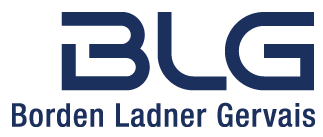Saskatchewan Telecommunications v. Unifor, Local 1S (Extended Sick Leave Grievances) [2014] C.L.A.D. No. 133 Canada Labour Arbitration
On March 10, 2014, Saskatchewan Labour Arbitrator Daniel Ish decided a policy grievance relating to the management of Saskatchewan Telecommunications’ (“SaskTel”) extended sick leave program and individual grievances relating to whether employees had provided sufficient medical information in support of their claims.
The policy grievance was brought by Unifor Local 1S (“Unifor”). In particular, Unifor took issue with SaskTel’s decision to delay paying benefits until a sick leave claim has been approved and with the use of an online medical tool to evaluate an employee’s eligibility for benefits.
Policy Grievance
In 2011, SaskTel decided to delay making sick leave payments until after an employee’s application had been evaluated and approved. If benefits were approved, employees received benefits retroactive to the first day missed. Previously, employees would receive sick leave benefits as soon as an application was submitted. Employees who were denied sick leave, however, were not required to repay the benefits received.
Arbitrator Ish found that employees are not automatically entitled to sick leave benefits upon the submission of a doctor’s note or sick leave application. Employers, and/or the entity administering the benefits plan on its behalf, must be given an opportunity to review and assess the claim before benefits become payable. SaskTel has a legitimate interest in limiting its liability for the payment of sick leave benefits and as such is entitled to wait until they have been approved before making them. At the same time, Arbitrator Ish found that SaskTel had an obligation to promptly assess claims and identify any problems with the documentation submitted. Nonetheless, in this case, SaskTel was required continue to make the interim payments up until a new collective agreement could be negotiated.
Unifor also objected to the use of an online medical database by Great West Life, which administers the sick leave plan on behalf of SaskTel, to assess claims. The database sets out average medical recovery times and the average length of absences from work for various illness and injuries. Arbitrator Ish found that the use such tools was appropriate as long as the statistical information was not the sole determinant of an individual’s eligibility for benefits. The individual circumstances of each claimant still needed to be taken into consideration.
Individual Grievances
Arbitrator Ish was also asked to decide individual grievances which related to whether employees had provided sufficient medical information to Great West Life. Arbitrator Ish acknowledged that employers, in certain circumstances such as long-term absences or significant accommodation requests, may require detailed medical information including a diagnosis to assess a claim.
One of the individual grievances related to an employee who had been provided with extended sick leave benefits in February of 2012 and reduced hours of work. The sick leave and reduced work hours continued unchanged into March of that year. In the latter half of March, GWL sought additional medical information. A medical questionnaire was completed by the employee’s doctor. GWL, however, remained unsatisfied and sought additional medical information from the employee’s psychologist. GWL also stated that benefits would be withheld if this information was not provided. The employee provided her consent to a discussion with her psychologist.
Arbitrator Ish found that the medical questionnaire contained extensive medical information which ought to have been sufficient to find the employee remained eligible for benefits. Moreover, Arbitrator Ish found that GWL did not have reasonable grounds to doubt the medical information provided in the questionnaire. Arbitrator Ish also found that GWL breached the employee’s privacy when it sought and obtained additional information from the employee’s psychologist as he felt that consent was not freely given. Arbitrator Ish, however, declined to award damages: he found that while GWL was overly aggressive in its attempts to obtain information, this was not an “egregious” case which warranted an award of damages.
Conclusion
Whether or not an employee has provided sufficient medical information will depend on the circumstances. Generally, employees will only be required to provide minimal medical information to justify short absences. An employer, however, may be entitled to receive additional medical information where an individual is off work for a long period, requires significant accommodation, or if there are reasonable grounds to doubt the medical information submitted by the employee.



